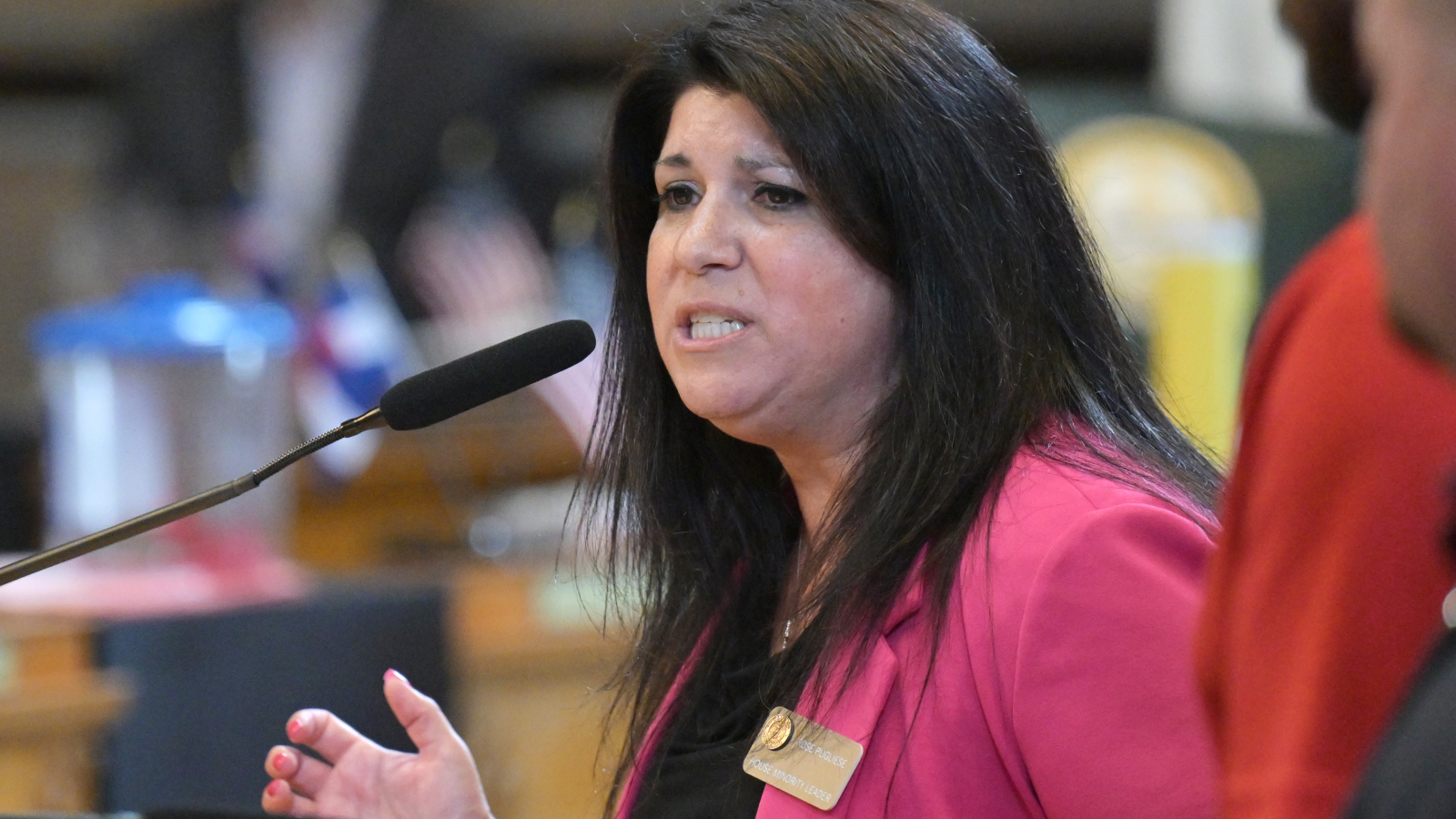By Our Reporter,The Nation
Copyright thenationonlineng

By Kayode Akinyemi
In the heart of Nigeria’s southwest, Ekiti State stands at a crossroads. Once celebrated for its intellectual vibrancy, cultural pride, and progressive politics, the state now finds itself mired in disillusionment, infrastructural decay, and political betrayal. As the 2026 governorship election looms, the people of Ekiti are not merely choosing a new leader—they are seeking redemption. And in this pivotal moment, one name echoes with growing resonance across the hills and valleys of Ekiti: Engr. Kayode Olubunmi Ojo.
A seasoned technocrat, accomplished businessman, and principled public servant, Engr. Kayode Ojo has emerged as the rallying point for a broad coalition of stakeholders within the All Progressives Congress (APC) and beyond. His candidacy is not just a political aspiration, it is a rescue mission. It is a call to restore competence, integrity, and visionary leadership to a state that has been systematically undermined by the current administration of Governor Biodun Abayomi Oyebanji.
The APC, a formidable force in Ekiti politics, now grapples with internal fractures and waning grassroots support for Governor Oyebanji, who rode to power on the back of party loyalty and grassroots mobilisation, and since turned his back on the very machinery that delivered his victory. His tenure has been marked by exclusion, neglect, and a disturbing preference for opposition figures over loyal APC members. Over one hundred key appointments, including commissionerships and localgovrnment top positions, have gone to individuals outside the party, leaving committed APC leaders sidelined and embittered.
This betrayal has not gone unnoticed. Ward leaders, youth organisers, and community mobilisers who once formed the backbone of Oyebanji’s campaign now speak in hushed tones of abandonment and regret. Party meetings have become rare, perfunctory affairs. The once vibrant APC structure in Ekiti has been reduced to a shell of its former self, with morale at an all-time low among members. Verified party membership figures have mysteriously plummeted from 186,000 to just 114,000, a deliberate manipulation, many believe, aimed at shrinking the support base in anticipation of a planned defection to ADC by the governor if he looses the primaries.
READ ALSO: Five fun ways to spark children’s love for reading
The governor’s relationship with the State House of Assembly further underscores his disdain for democratic norms and party cohesion. Rather than empowering APC legislators as partners in governance, Oyebanji has systematically excluded them from decision-making processes. Lawmakers, elected to represent the people, have been rendered spectators in their own government. This erosion of legislative influence has weakened internal checks and balances and deepened the crisis within the party.
Beyond the political missteps, Governor Oyebanji’s performance in office has been underwhelming at best and catastrophic at worst. His administration has failed to deliver on basic infrastructure, healthcare, education, and security. Instead of addressing the pressing needs of the people, he has diverted billions into endorsement jamborees, all in vain attempts to manufacture popularity through political theatre. Billions have been spent on these spectacles under different guises, while roads crumble, clinics remain unequipped, and schools struggle to stay open.
One of the most glaring failures of the Oyebanji administration is its handling of federal roads in Ekiti State. The governor has consistently deflected responsibility, blaming Abuja for the deplorable condition of these roads. Yet, he found billions to rehabilitate, albeit shoddily, the Ado–Ifaki axis when it suited his political interests. This selective approach to governance reveals a troubling lack of commitment to the welfare of Ekiti citizens. In contrast, Governor Dapo Abiodun of Ogun State faced similar challenges but took decisive action, committing nearly N100 billion to fix critical federal roads. Leadership, after all, is about action, not excuses. In addition, and instead of being a responsible servant to his people, the governor hilariously designated some roads as alternative routes for people coming to Ekiti after citizens complained about the most secured and shorter roads. This action , is an attempt to disparage the federal government that has intervene may times on Ekiti finances to support infrastructure. The federal roads have been awarded, but because of bereaucratic protocols, there were delays. The governor is expected to provide palliatives on the roads to make it passable pending construction.
Engr. Kayode Ojo offers a stark and refreshing contrast. As Pro-Chancellor of the Federal University, Oye-Ekiti, he facilitated palliative repairs on the Ifaki–Ikole road, easing the movement of students and staff at a time when the state government looked the other way. His intervention, achieved without the resources of a governor, underscores his capacity for pragmatic leadership and his commitment to public service.
But Ojo’s impact extends far beyond Ekiti. As Pro-Chancellor of the University of Nigeria, Nsukka (UNN), he inherited a deeply fractured institution grappling with leadership vacuums and administrative uncertainty. The absence of a substantive Vice-Chancellor had left the university in limbo, affecting academic calendars, staff morale, and student welfare. Through strategic consultations and principled leadership, Engr. Ojo facilitated a transparent process that led to the appointment of a substantive Vice-Chancellor, an achievement that had eluded the institution for four years.
His efforts at UNN have earned President Bola Ahmed Tinubu widespread respect and support across the Eastern region, with community leaders, academic unions, and student bodies acknowledging the President’s role in stabilising the university; thanks to Ojo’s diplomatic acumen. In a country where educational institutions often suffer from politicised interference, Engr. Ojo’s approach offers a model of principled leadership and institutional reform.
Engr. Kayode Ojo’s blueprint for Ekiti is as ambitious as it is transformative. At its core is a commitment to functional human capital development, empowering citizens through education, vocational training, and entrepreneurial capacity. His agricultural reforms aim to shift the sector from subsistence to agribusiness, leveraging modern techniques and value-chain development to boost productivity and exports. In tourism, he plans to unlock Ekiti’s natural and cultural assets through strategic site upgrades, hospitality training, and global marketing initiatives.
Infrastructure development will be pursued aggressively, with improved roads, energy, and digital connectivity laying the foundation for commerce and investment. Perhaps most visionary is his plan for a super-highway connecting Ekiti directly to Nigeria’s coastal seaports, a game-changing infrastructure project that will transform the state into a pivotal inland logistics hub. This dry port will streamline national trade routes, slash transit costs, and magnetise investment, positioning Ekiti as a powerhouse in Nigeria’s supply chain.
In line with President Tinubu’s Renewed Hope Agenda, Engr. Ojo is committed to ensuring total autonomy for local governments in Ekiti. Through international partnerships, diaspora engagement, and transparent governance, he aims to elevate Ekiti’s profile on the world stage, turning it into a model of inclusive, people-powered development.
The stakes could not be higher. Ekiti is bleeding, politically, economically, and socially. The current administration has squandered goodwill, betrayed party loyalty, and failed to deliver on the most basic expectations of governance. The people are not asking for miracles; they are asking for roads that don’t crumble, schools that educate, hospitals that heal, and policies that uplift. They are asking for justice, opportunity, and development.
Engr. Kayode Ojo represents the best hope for Ekiti’s future. His track record in business, education, and public service speaks volumes. His vision is bold, his leadership is principled, and his commitment to the people is unwavering. As the APC prepares for its gubernatorial primaries, the choice before the party is clear: continue down the path of exclusion, incompetence, and betrayal—or embrace a new era of competence, integrity, and visionary leadership.
To fully capture the scope of Engr. Kayode Ojo’s emergence as the most viable candidate for the APC governorship ticket in Ekiti State, it is essential to examine his strategic manifesto. In a time when Nigerian states are clamoring for visionary leadership and strategic transformation, Ekiti State finds itself at a pivotal juncture. The manifesto of Engr. Kayode Olubunmi Ojo, a seasoned engineer and entrepreneur, offers not just a political promise but a comprehensive blueprint for a new era of innovation, prosperity, and global integration. His strategic master plan for Ekiti State, spanning 2026 to 2036, is a bold declaration of intent, one that seeks to reposition the state as a beacon of excellence in governance, infrastructure, and human capital development.
At the heart of Engr. Ojo’s vision is a deep understanding of Ekiti’s historical identity as a land of honour, knowledge, and resilience. He invokes the legacy of pioneers like Chief Deji Fasuan and Chief Afe Babalola, whose dreams for the state were rooted in equity, merit, and sustainable development.
Yet, as he rightly observes, that dream remains largely unfulfilled. What Ekiti lacks is not intellect or ambition, but leadership, competent, courageous, and committed to long-term prosperity. Ojo’s manifesto is a response to that void, crafted not as a populist document but as a strategic roadmap grounded in data, global best practices, and inclusive governance.
His vision is to transform Ekiti into a globally competitive, economically vibrant, and technologically advanced region. This will be achieved through strategic investments, inclusive governance, and sustainable development. His mission is clear: implement a 10-year master plan that fosters innovation, drives industrial and agricultural growth, and builds world-class infrastructure. The plan is anchored on core values, integrity, inclusiveness, innovation, sustainability, and citizen-centricity, that reflect a governance philosophy rooted in transparency and accountability.
One of the most compelling aspects of the manifesto is its emphasis on unlocking Ekiti’s latent potential. Ojo proposes a multi-sectoral approach that includes food security, industrialization, urban transformation, transport networks, and investment mobilization. Agriculture, for instance, will be modernized through agro-industrial parks in various locations in the state, featuring processing plants, cold-chain logistics, and training institutes. Smart irrigation systems along Rivers Ose, Ero, and Osun will ensure year-round productivity, while digital tools like drone mapping and fintech solutions will enhance efficiency. Youth engagement will be encouraged through AgriTech challenges and subsidized loans, positioning agriculture as a driver of employment and export revenue.
Industrial development is another cornerstone of the plan. Ojo envisions Ekiti as an innovation-driven industrial hub, with special economic zones attracting agro-processing, pharmaceuticals, renewable energy, textiles, and light manufacturing. SMEs will be nurtured through access to finance, training, and diaspora engagement. Moribund industrial assets will be revived, and university research will be commercialized to fuel enterprise growth. By 2036, the plan targets 100 functional industries and 5,000 SMEs generating over 200,000 jobs. To drive the industrialization ambition, Ojo plans to invest in the energy sector through IPP and foreign partnership.
Technology and innovation are central to Ojo’s strategy. The “Ekiti Knowledge and Innovation Corridor” to be positioned in strategic locations, will host incubators, research labs, and venture studios. Digital startups in fintech, edtech, AgriTech, and health tech will receive incentives, while bootcamps and fellowships will train 5,000 tech professionals. A Tech Export Policy will position Ekiti as a regional destination for software development and data services, with the goal of nurturing billion-naira startups and exporting tech services across Africa.
Urban transformation will be driven by the development of smart cities and mega infrastructure. Ado-Ekiti will undergo major regeneration, featuring modern street lighting, CCTV surveillance, green parks, and energy-efficient mixed-use developments. Integrated fiber optics, smart meters, and a Smart City Command and Control Center will enhance service delivery and emergency response. Satellite centers will emerge and will host affordable housing with solar rooftops and smart utilities. A proposed Ekiti State Urban Renewal and Housing Authority will reserve 40% of new units for youth, low-income earners, and public servants.
Transport connectivity will be revolutionized through the construction of the Ekiti-Lagos 4-Lane Expressway, a 150-kilometer highway linking Ekiti state directly to Nigeria’s seaport in Lagos, and establishing a dry port where containers due for northern parts of Nigeria, will be cleared. This effort will transform Ekiti from a landlocked state to a destination for all. In addition, urban mobility solutions, including light rail systems and Bus Rapid Transit corridors, will improve movement and reduce pollution. Rural roads will be modernized to ensure access to markets, schools, and health centers, while the Ekiti International Airport will be upgraded to support agro-cargo logistics and regional air connectivity.
Ojo’s manifesto also includes a visionary proposal for the Jesus City Development Concept, a faith-based tourism hub located at the sacred triangle Erio Mountain and other similar places. The plan includes a pilgrimage center, heritage sites, an executive airstrip, and modern amenities to support both visitors and residents. This initiative aims to position Ekiti as a spiritual and tourism capital, generating jobs and enhancing revenue.
Education and human capital development are central to the plan. Basic education will be upgraded with renovated schools, digital labs, and school meals, targeting 90% literacy by age 10. Tertiary institutions will receive infrastructure upgrades and research-industry partnerships, while vocational training centers will train 100,000 youths by 2030. Adult literacy programs aim to lift 200,000 adults from illiteracy, and teacher recruitment and professional development will enhance equity and quality. The goal is full enrollment, high digital literacy, and top national rankings by 2030.
Sports development will be pursued aggressively, with modern facilities in all local government areas, sports academies, and grassroots competitions. Scholarships and training programs will support athletes, while public-private partnerships will fund infrastructure and programs. Judiciary reform will digitize court processes, establish fast-track courts, and expand alternative dispute resolution centers. Civil service reform will introduce merit-based recruitment, performance management systems, and citizen-centric service delivery.
To fund this ambitious agenda, Ojo proposes a transformational funding strategy aimed at mobilizing over $5 billion. This includes public-private partnerships, diaspora investments, capital markets, and development finance institutions. The Ekiti Sovereign Wealth Fund will comprise a Stabilization Fund, Infrastructure Fund, and Future Generations Fund, financed through land premiums, royalties, and dividends. Innovative financing channels like green bonds, crowdfunding, and carbon credit programs will promote local participation and climate-resilient development.
Implementation will be overseen by the Ekiti Project Delivery Unit, supported by Sector Delivery Teams and decentralized monitoring committees in all 16 LGAs. A digital procurement platform will ensure transparency, while annual strategic retreats will assess progress and recalibrate targets. A Strategic Master Plan Implementation and Governance Act will define roles, enforce budget compliance, and protect whistleblowers.
Monitoring and evaluation will be powered by real-time dashboards, independent audits, and a Citizens’ Reporting App. Results-based budgeting will link allocations to performance, fostering efficiency and accountability. The manifesto aligns with President Bola Ahmed Tinubu’s Renewed Hope Agenda, localizing its principles to meet Ekiti’s unique needs.
Grassroots mobilization, youth and women empowerment, and party consolidation will ensure a disciplined, people-centered platform capable of sustaining progress.
By the end of his tenure as Governor, the plan aims to have created over one million jobs, increase internally generated revenue by 50%, and reduce poverty by 40%. Ekiti will rank among Nigeria’s top five states in Human Development Index, with improved healthcare, education, and water access. The state will become a stable, investor-friendly environment, unlocking domestic and foreign capital, technology transfer, and global partnerships.
In recent months, the agenda of Engr. Kayode Ojo has attracted growing attention, particularly his bold vision to reposition Ekiti through smart security and modern healthcare systems. For him, safety is not just about deploying more security personnel; it is about embracing technology to protect lives and property. His plan is to build a fully digital security architecture powered by surveillance cameras, real-time monitoring, and rapid response units. What sets his proposal apart is the mandatory biometric capture of all residents and the issuance of a unique social identification number. This, he believes, will drastically reduce crime, ease investigations, and create a database that supports smarter governance. With these measures, Ojo is confident Ekiti can evolve into one of the safest states in the country, capable of attracting investors and giving residents peace of mind.
Equally ambitious is his healthcare agenda. Engr. Ojo is pushing for a total transformation of Ekiti’s medical sector by turning the state into a “medical tourism” destination. His blueprint includes upgrading hospitals with world-class equipment, building specialist centers, Ekiti Smart Hospital, and introducing digital patient management systems. Recognizing affordability as a major barrier, he plans to roll out a health insurance scheme that will guarantee access to quality care for all citizens. Beyond facilities, his approach also focuses on attracting and retaining skilled medical professionals by providing modern infrastructure and incentives. With these reforms, Ekiti would not only meet the needs of its people but also draw patients from across Nigeria and beyond, positioning itself as a trusted hub for healthcare excellence.
Engr. Kayode Ojo’s manifesto is more than a political document, it is a pledge to shared prosperity, innovation, and global competitiveness. It calls for disciplined governance, stakeholder collaboration, and civic engagement, uniting government, private sector, diaspora, and citizens in a mission to build an inclusive, resilient, and forward-looking Ekiti. With political will and committed execution, the state will emerge as a model of progress and leadership in Nigeria and beyond.
Akinyemi is a member of Team Kayode Ojo for Governor



